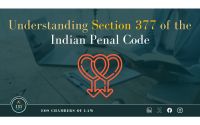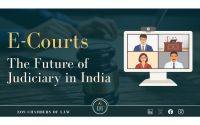Supreme Court Refuses To Interfere With HC Order Allowing De

Supreme Court Refuses To Interfere With HC Order Allowing Delhi University To Use CLAT Score For 5 Yr LLB Admissions In 2023-24
The Supreme Court on Monday(September 25) refused to interfere with the interim order passed by the Delhi High Court allowing the University of Delhi to admit students in the 5 year LL.B course of its Faculty of Law on the basis of the Common Law Admission Test (CLAT).
Noting that the classes have already commenced, a bench led by Chief Justice of India DY Chandrachud dismissed the special leave petition filed by a student, who demanded that the admission should be on the basis of the Common University Entrance Test (CUET) held by the University for other courses. CLAT is conducted by the Consortium of National Law Universities.
"This is an interlocutory order, we cannot interfere. You can argue in the High court. HC will consider it for the next year. For this year, HC thought let CLAT reign", CJI said.
On September 18, a division bench of Chief Justice Satish Chandra Sharma and Justice Sanjeev Narula passed the interim order permitting the Delhi University to offer admissions in its newly introduced five-year integrated law courses on the basis of CLAT-UG 2023 score, only for the current academic year. The court was hearing a PIL challenging Delhi University’s decision to offer the said admissions solely on the basis of CLAT-UG 2023 score, instead of CUET.
The bench observed that the matter requires consideration and listed it for hearing for a broader question i.e. whether CUET should be mandatory for admissions in all Central Universities or if such varsities are at a liberty to admit students through other examinations conducted by other specialized agencies.
“However, for the present academic year 2023-24, as classes have already started, by way of interim relief, DU is permitted to admit students to its Five Year Integrated Law Course based on CLAT UG 2023,” the High Court ordered.
Post Categories
Featured Posts
Latest Posts
Latest Posts

Legal Challenges in Cryptocurrency and Blockchain Exploring the Evolving Legal Landscape...
The rise of cryptocurrencies and blockchain technology has revolutionized the financial world but it has also brought about a series of complex legal challenges As more businesses and individuals adopt digital currencies and decentralized systems governments and regulatory bodies are...

Startups and Legal Compliance A Guide to Navigating Indian Laws...
Starting a business in India is an exciting journey filled with opportunities and challenges One critical aspect that often poses a challenge for startups is navigating the complex landscape of legal compliance Understanding and adhering to the various laws and...

Dividend Income From Indian Entity's Establishment In Oman Having Permanent Establishment Status Under DTAA...
The Supreme Court has held that if an Indian Entity rsquo s Establishment is operating in Oman and has a lsquo Permanent Establishment rsquo status under Double Taxation Avoidance Agreement ldquo DTAA rdquo then the dividend income received by the...

Cheque Bounce Case Can Be Quashed U S Only If Amount Is Patently Non-Recoverable...
The Supreme Court observed that the question whether a cheque was issued towards a time barred debt is to be decided on evidence ldquo It is only in cases wherein an amount which is out and out non-recoverable towards which...

ADR in Family Law Benefits and Challenges...
Alternative Dispute Resolution ADR has become a pivotal tool in family law offering a way to resolve disputes without the need for contentious court battles At Eos Chambers we've observed the growing reliance on ADR methods such as mediation arbitration...

Why Is CARA Delaying Adoption Process Supreme Court Calls For Prompt Action To Benefit...
The Supreme Court on Friday raised serious concerns over the delays in the adoption process and the potential impact on both aspiring parents and children in need of loving homes The remarks came from a bench comprising CJI DY...

Speak With Our
Get a Appointment
















